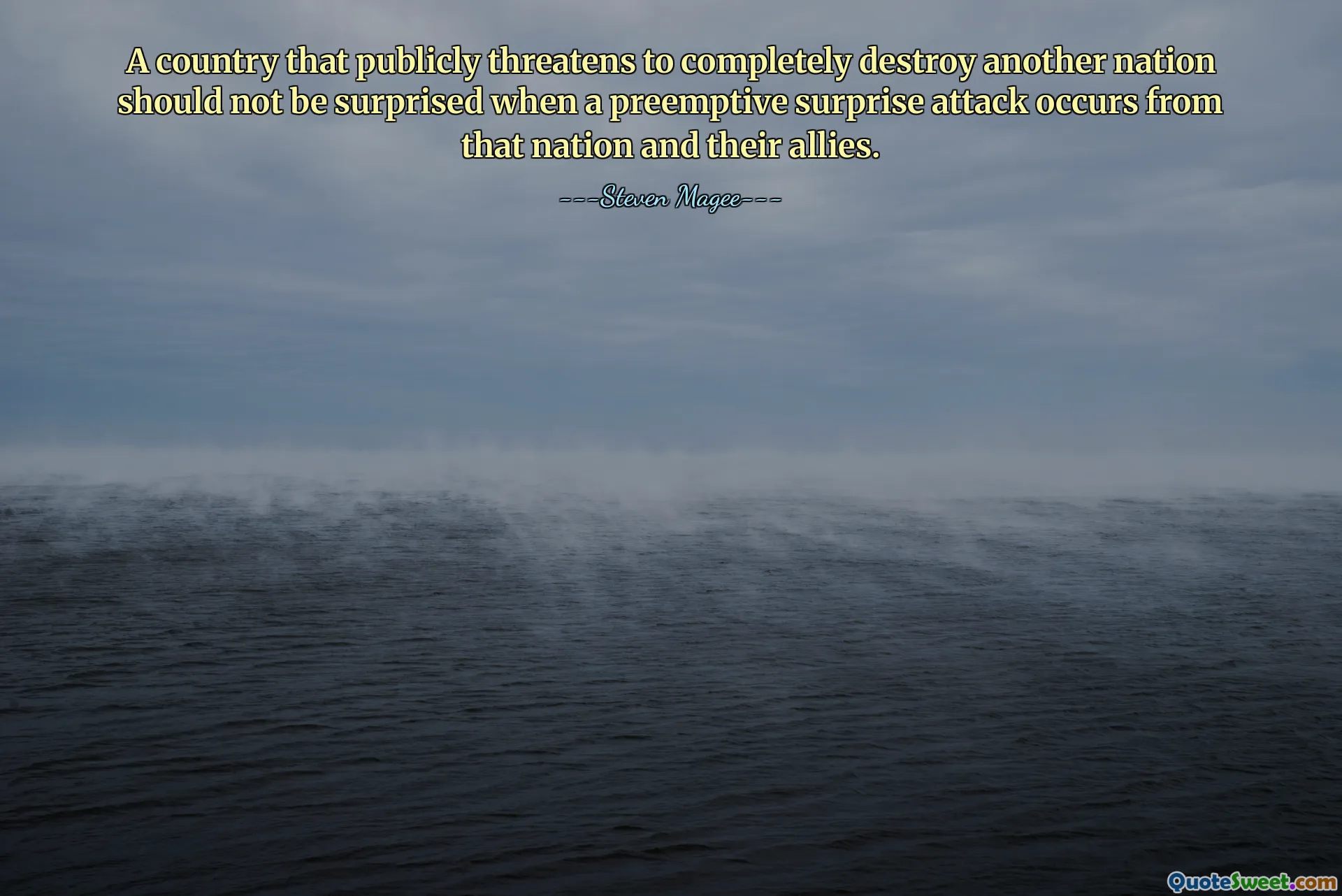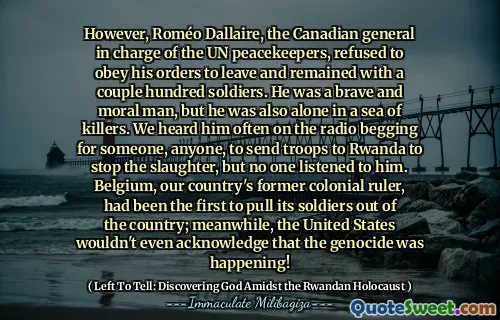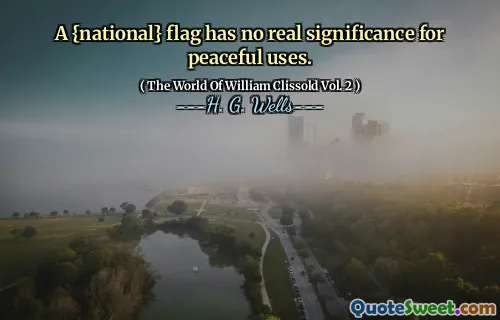
A country that publicly threatens to completely destroy another nation should not be surprised when a preemptive surprise attack occurs from that nation and their allies.
This quote underscores the dangerous reciprocity that can emerge from aggressive rhetoric in international relations. When a nation openly issues threats of total destruction against another, it escalates tensions and decreases the space for diplomatic resolution. Such threats can be perceived as invitations for preemptive action, prompting the targeted nation and its allies to consider measures of defense that may include surprise attacks. Historically, this phenomenon has been evident in various conflicts where diplomatic failures and aggressive posturing lead to preemptive strikes, often resulting in devastating consequences. The logic here emphasizes accountability; countries that threaten aggressively should be prepared for retaliatory measures, which may be justified or escalated in response to inflammatory language. It also highlights the importance of measured diplomacy and cautious communication in avoiding unnecessary warfare. Leaders should recognize that inflammatory threats can increase the likelihood of conflict, potentially initiating a cycle of violence that could have been avoided through prudent dialogue and diplomacy. In the broader scope, the quote calls for a recognition of the power of language in shaping international stability and urges restraint from nations provocatively threatening others, as such words may set in motion military actions that could otherwise be prevented through diplomatic engagement and mutual understanding.











